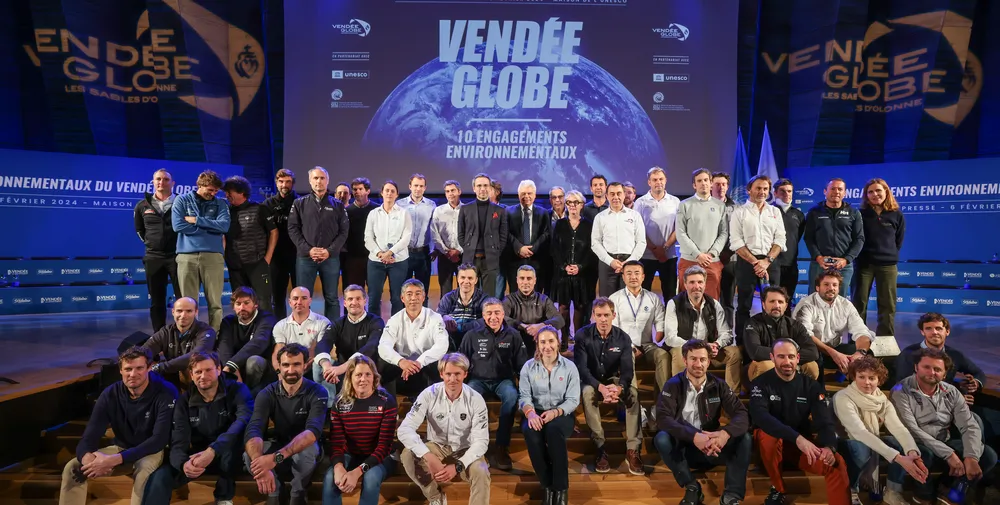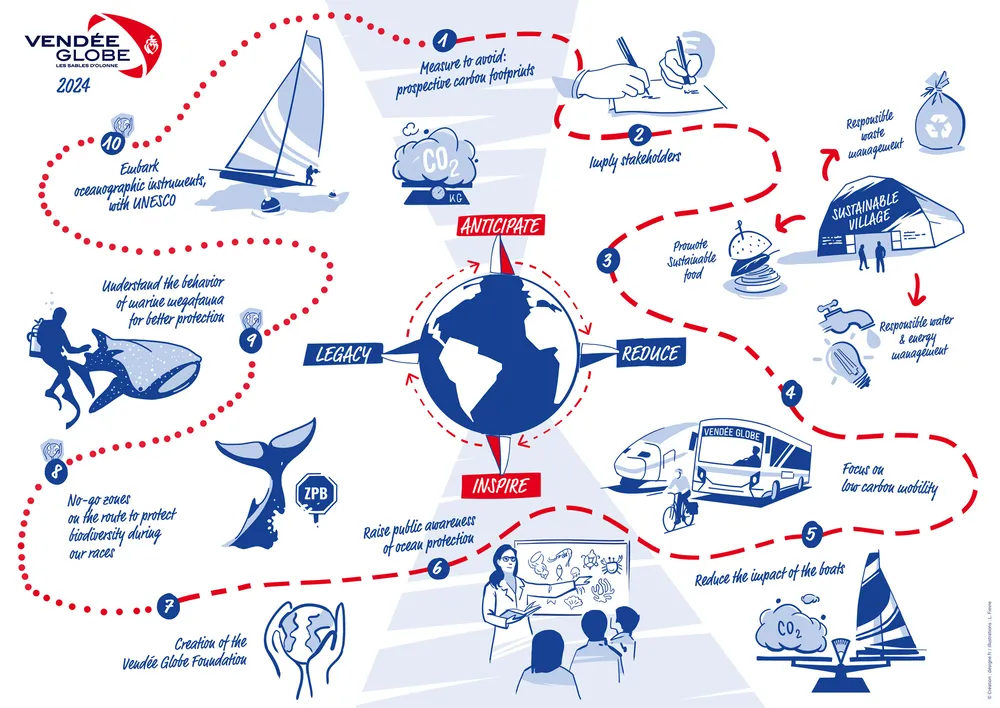BUILDING A POSITIVE LEGACY with the Vendée Globe Foundation
The Vendée Globe aims to make its actions in favor of the environment a long-term commitment. The SAEM Vendée and the Département de la Vendée therefore decided to jointly set up the "Vendée Globe Foundation" endowment fund with three founding members: the Caisse Régionale du Crédit Agricole Mutuel Atlantique Vendée, the Caisse Fédérale du Crédit Mutuel Océan and the Banque Populaire Grand Ouest. The aim of the fund is to provide financial support for concrete research projects aimed at preserving marine ecosystems, in relation to the round-the-world route taken by the skippers. Sodebo, a long-standing partner of the race, is the first contributor.
The endowment fund is currently supporting 3 projects:
Share The Ocean
In order to delineate biodiversity protection zones along the race route in 2024, the Vendée Globe will be working with the transdisciplinary scientific consortium Share The Ocean. The aim is to minimize the risk of collisions between the IMOCA and marine megafauna.
The William Mission of the association Over the Swell
The purpose of Mission William is to better understand the migratory routes of the whale shark - the world's largest endangered fish - in order to protect it more effectively. This mission is supported by Over the Swell, an association that works to protect the ocean through wonder, education and the organization of oceanographic missions.
A key partnership with UNESCO
For nearly 10 years, many of the Vendée Globe skippers have been supporting participative science by taking on board or deploying various scientific instruments. These initiatives contribute significantly to enriching the scientific databases in the rarely visited areas of the Southern Ocean along the Vendée Globe route.
The organization wishes to reach a new milestone in 2024, by joining forces with UNESCO to coordinate, on a global and international scale, the embarkation of oceanographic measurement instruments on its race, in conjunction with various players: the Intergovernmental Oceanographic Commission of UNESCO (IOC/UNESCO), the GOOS, OceanOPS and the IMOCA Class. This partnership is part of the United Nations Decade of Ocean Science for Sustainable Development (2021-2030), coordinated by the IOC/UNESCO. "We are keen to fully assume our role in this project and to adopt a long-term perspective. Our commitment to UNESCO will enable us to make significant progress in this participative science project," explains Alain Leboeuf, President of the Vendée Globe and the Vendée Department.
From 2028, all the competitors in the Vendée Globe will be equipped with scientific instruments for unprecedented data collection in the Deep South.




